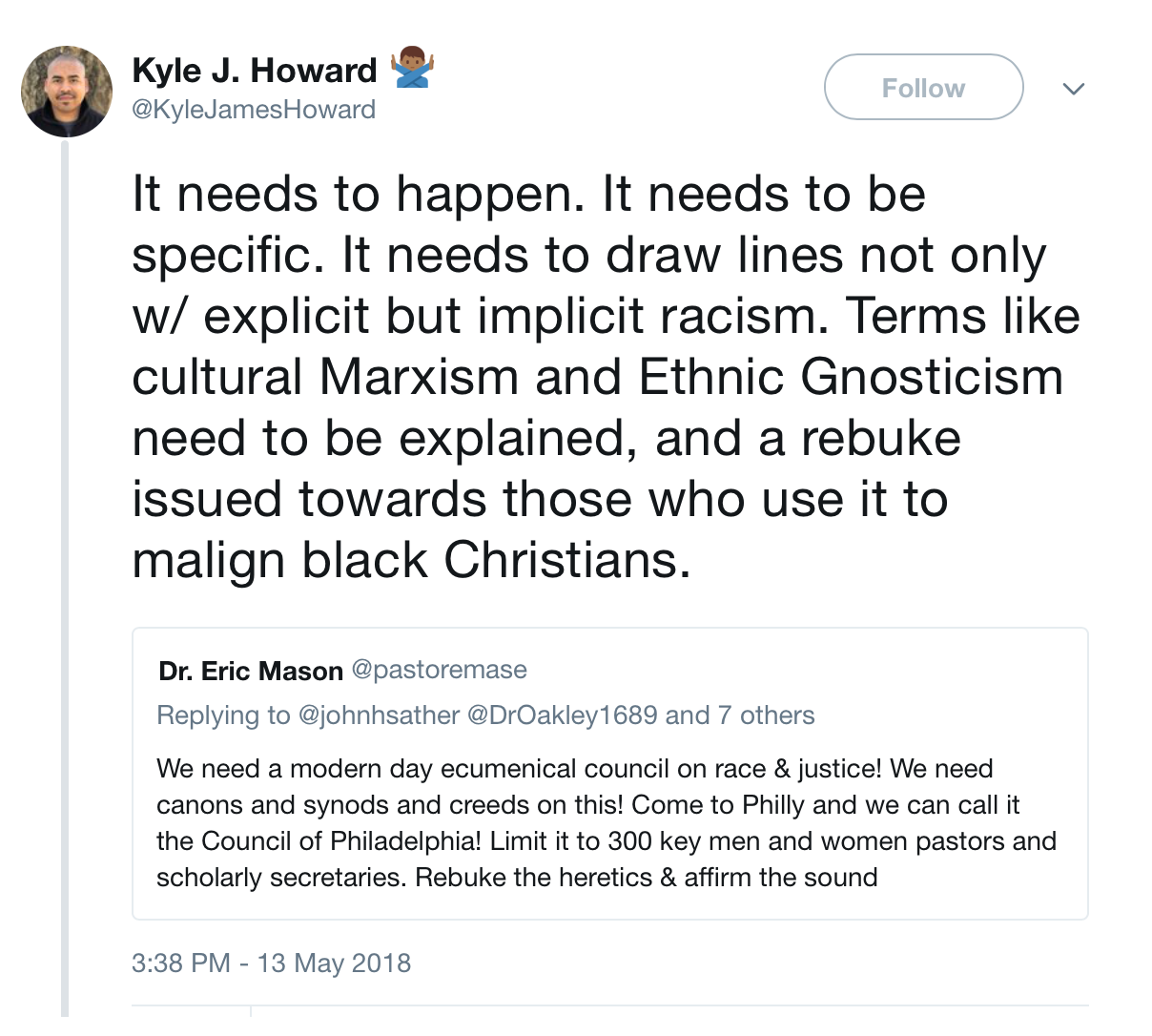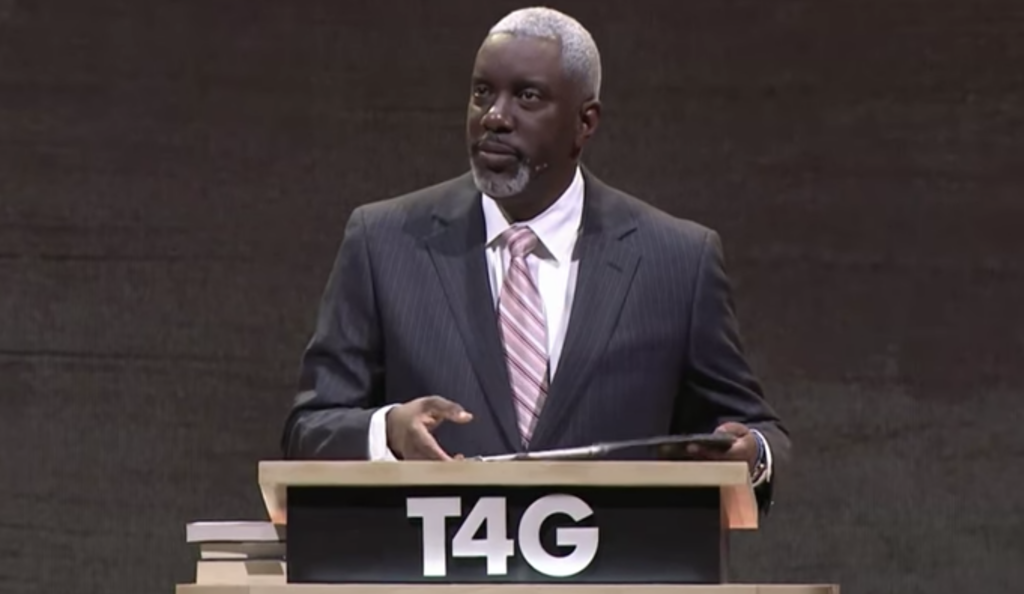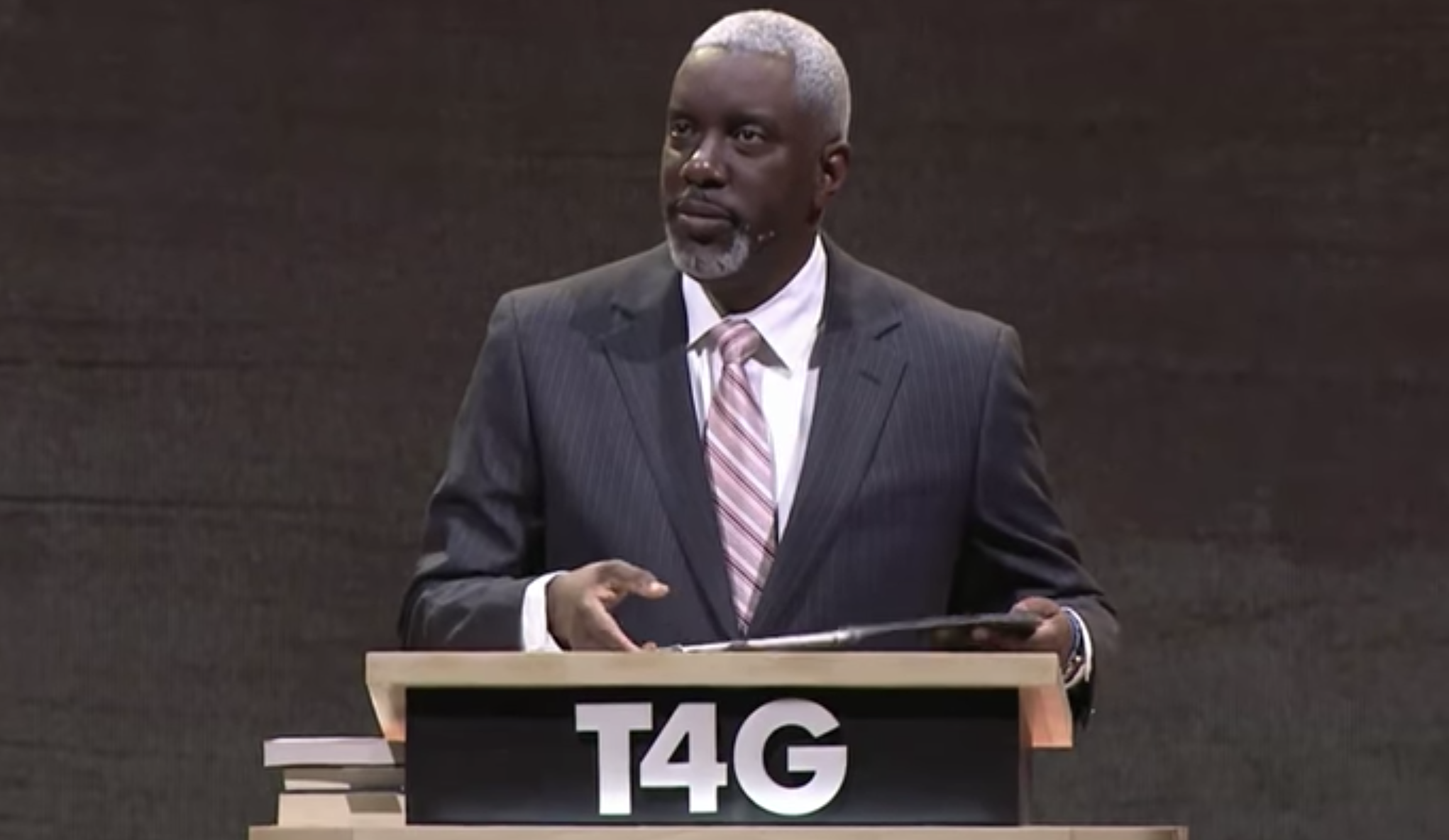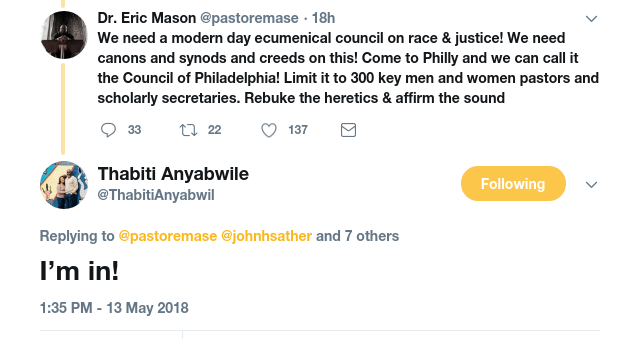Make no mistake about it. The Reformed Resurgence – the return of Calvinism back to prominence in western Christianity in the last few decades – has been co-opted and commandeered by leftists who have determined to use the movement to accomplish their progressive agenda. What the Communist Party once succeeded in doing in the American Black church in the mid-twentieth century, chiefly infiltrating robust and healthy African American congregations with Liberation Theology and Social Gospel, enslaving them again to the yoke of political bondage and a permanent proletariat identification with victimhood, these same ideological forces are doing in the American Reformed community. As a Calvinist, I lament what is happening to the stream of theological thought known as Calvinism in America. Largely abandoning the Gospel-focus of the Doctrines of Grace, many Calvinists (but certainly not all) have been susceptible to the Marxist thought-leaders who have successfully infiltrated Calvinist institutions and churches with the notion of Social Gospel, repackaged as Social Justice. The Reformed Resurgence’s origins can likely be traced back to the launch of The Banner of Truth in 1955 and has come into vogue with Collin Hansen’s famous article, Young, Restless and Reformed, the once-pure theological focus of Calvinism’s return has been seen as a useful change agent for global political causes. In recent months, the mission drift of the Reformed Resurgence has been on wide display through the venue of popular conferences and has been received with wide applause rather than mourning.
It’s not far-fetched that an organic and purely theological movement should be used by Marxists, who having successfully fought for the wheel to the bandwagon, have decided to steer it to the left. It has happened before. In the late 1960s, churches comprised of primarily African Americans were mostly vibrant, successful, and thriving. They were, by and large, doctrinally sound and successfully anchored the black community to a Judeo-Christian worldview and were at least as theologically solid as the “typical” church comprised primarily of Caucasians. In fact, some studies suggest that churches in the black community had a greater moralizing influence among its attendees than the mainline Protestant denominations. While the center of white communities became the civics centers, schools, town halls and taverns in the 1960s, the center of black communities largely remained the church. However, in the 1950s and in the aftermath of World War II while the global conquest of Communists was just beginning to amp up the Cold War, Marxists saw an opportunity presented in this rich and thriving aspect of the black community. The Communist Party USA actively embedded change agents (or Agent of Influence, to use communist terminology) inside primarily black churches and in Bible Colleges designed to equip African American leaders. What developed within a decade was Black Theology, a term that was defined first in 1969 by the National Committee of Black Churchmen (originally, the National Committee of Negro Churchmen, called the NCNC).
Black Theology, as defined by the NCNC, was a discipline of hermeneutics that sought to view Scripture through the lens of race, which would provide affirmation to the black community, while anticipating white racism. “Blackness,” through Black Theology, wasn’t limited to skin-color, but was to be seen as a status symbol for the oppressed. To truly be black had little to do with skin color, they argued, and everything to due with victimology; viewing themselves as primarily victims in need of justice was the overarching point of Biblical theology, at least as it pertained to the black church. By 1970, James Cone had written his book detailing what he called Black Liberation Theology in A Black Liberation of Theology, in which he claimed that Christianity was “a rational study of the being of God in the world in light of the existential situation of an oppressed community, relating the forces of liberation to the essence of the Gospel, which is Jesus Christ.” The enemy of the black church, Cone claimed, was the white church, which failed to help blacks in the struggle for racial justice. If the white church wanted unity with the black church, he claimed, they have to help administer justice. Justice, by Cone, was never clearly defined. In a society that was post-civil rights movement and the abolition of Jim Crow laws in the past, the problem for the Black Liberation theologians was being specific with their demands for justice, or clear on what constitutes justice.
Along with Cornel West, Cone and other proponents of Black Liberation Theology, the purported but ill-defined injustices indeed had a solution. The solution was Marxism. Cone wrote in his book For My People…
“…the Christian faith does not possess in its nature the means for analyzing the structure of capitalism. Marxism as a tool of social analysis can disclose the gap between appearance and reality, and thereby help Christians to see how things really are.”
Cornel West agreed, and in 1979 wrote his essay, Black Theology and Marxist Thought, in which he urged black theologians to fully integrate themselves into Marxism and learn from Marxist leaders. He claimed that “Both [Black Liberation Theology and Marxism] focus on the plight of the exploited, oppressed, and degraded peoples of the world, their relative powerlessness and possible empowerment.”
It is from this point forward, as more and more churches comprised primarily of African Americans replaced Biblical theology with Black Liberation Theology, that the Gospel was replaced with the Social Gospel. The fact is, a member of the “typical” African American church in 1955 would probably not recognize the theology of that same church thirty years later. What eventually happened through Black Liberation Theology was the Marxist pillaging of the soul of the black church and the selling of black congregations on the political auction block. The result of the Marxist take-over of the American black church is best seen in the scandals surrounding Barrack Obama’s pastor, Jeremiah Wright and his church, Trinity United Church of Christ in Chicago.
[bctt tweet=”What eventually happened through Black Liberation Theology was the Marxist pillaging of the soul of the black church and the selling of black congregations on the political auction block.” username=”pulpitpenblog”]
When David Platt walked onto the stage at the recent Together for the Gospel conference and asked why there wasn’t more racial diversity in the crowd, the answer is not systemic white-on-black racism. The answer is a historic one; the African American Church was largely taken over by Marxists, the Gospel was pilfered, and it was replaced with identity politics. Many African Americans are not present at such events not because of white racism, but because their church replaced the Gospel with Marxism and they have no desire to be at such a conference. The solution to that problem is not Critical Race Theory or Cultural Marxism; those are the problems. The solution is the actual Gospel, which is largely being left behind by the group known as Calvinists.
As a case-in-point, I direct your attention to a tweet between Eric Mason and Ron Burns, who goes by his Black Nationalist name, Thabiti Anyabwile. Mason and Burns are both African Americans, both are Southern Baptists, and both claim to be Calvinists. Both have both written at and been written about at The Gospel Coalition and have spoken at prominent conferences among New Calvinists. Burns is heavily promoted (and got his name recognition) by the Calvinist leader, Mark Dever. Dever, although sound in other areas like soteriology and ecclesiology, has a troublesome tendency to promote Social Justice warriors like Anyabwile and Russell Moore (Dever was instrumental in placing Moore at the ERLC, with a trustee at his church providing a pivotal role in that appointment). Dever, whose attention on politically-laced Social Justice may be due to his church being in Washington D.C. and the influence of “the swamp,” has not shown signs of trepidation regarding the mission drift of some of his disciples.
Mason and Burns had the following exchange:
Of course, the irony in the supposedly sound men of God is that there was already a council on race and justice. It wasn’t ecumenical, however (God forbid ecumenism). It was Apostolic, and it occurred in Acts 15 in roughly 48AD. Called “The Jerusalem Council” or “The Apostolic Council,” the Apostles and early church elders gathered to discuss the inclusion of the Gentiles into the Christian Church. Also, a matter on the agenda was the issue of Ceremonial Law, and whether or not the laws of Old Testament cultic Israel had to be followed by the Gentiles. Both the Apostles and the elders (most prominently, James the brother of Jesus), made an authoritative decree under the inspiration of the Holy Spirit that the only prohibition applied to the Gentile believers is that they not commit those acts that were considered especially grievous to the Jews and associated heavily with pagan worship, chiefly the eating of strangled meat, eating of blood, or sexual immorality (which was probably a reference to types of orgies associated with pagan temple worship).
The problem with Eric Mason, Ron Burns, and the countless young Calvinist white guys who’ve never read a twentieth-century history book is that they’re not promoting anything new. Their fixation on race has already been tried by the black Christian community, and it has lead to their almost total destruction. What they’re advocating for is, in no uncertain terms, Cultural Marxism, Critical Race Theory, and Black Liberation Theology. And, much thanks to an American educational system that teaches neither history nor economics, many New Calvinists do not understand what it is they’re promoting.
The next problem with Mason, Burns and et al, is that their fixation on victimology and race is juxtaposed against the very Scripture itself. While the Apostles instruct us to utterly disregard race (Galatians 3:8, Romans 3:29, 1 Corinthians 12:13), these men are leading a sizable contingent of Calvinist men to adopt the very theological-political suppositions that demand viewing the world through the lens of race.
Jesus wept.
[Contributed by JD Hall]
PS I just saw this from Kyle J. Howard. Howard, who is more privileged than 99.99% of Americans (he was raised by two wealthy attorney parents, one an ethnic minority, in an affluent suburb), and who we wrote about here. Howard is a Critical Race Theorist and a Change Agent embedded at Southern Baptist Theological Seminary. Howard claims to be a “Racial Trauma Counselor.” The term, “implicit racism,” as he uses it, is also known as a microaggresson, which is a concept coined by Critical Race Theorists. 













